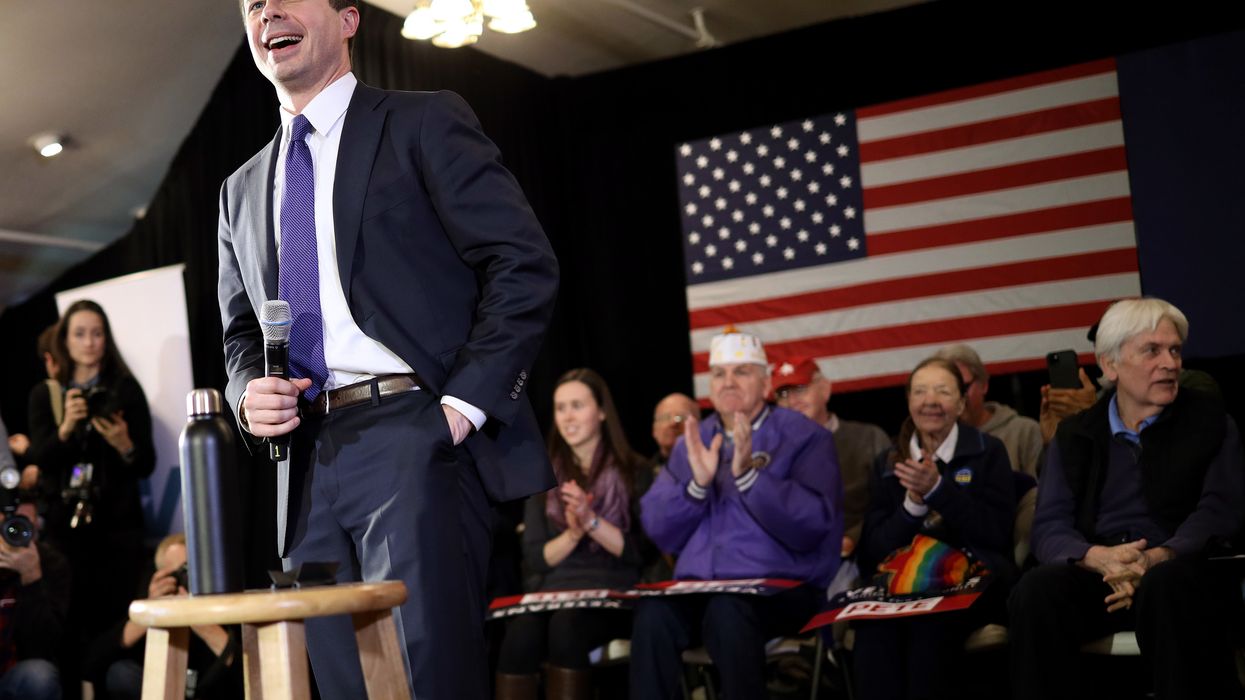Seven Democrats have been invited on stage for Friday night's debate ahead of the New Hampshire primary, including three who have vowed that their first legislative priority as president would be enacting an ambitious clean government package.
Town hall meetings and candidate coffees in the first primary state have for months featured discussions about expanding voting rights, curbing money in politics and overhauling such bedrock government institutions as the Supreme Court, the Electoral College and the Senate filibuster. But the disagreements among the candidates have been subtle, and so there's no reason to believe the moderators will find new flashpoints or cleave new divisions on democracy reform topics at the debate, being conducted at Saint Anselm College in Manchester at 8 pm Eastern.
The table below shows where the seven candidates stand on 17 of the most prominent proposals for improving the way democracy works — in areas of campaign finance, access to the ballot box, election security, political ethics and revamping our governing systems.
In July End Citizens United, an advocacy group mainly interested in shrinking big money's sway over campaigns and governing, asked all the candidates to sign a pledge that they'd make a bill revamping the political system and boosting government ethics their initial legislative priority in the White House.
Three of the top five finishers in Iowa's troubled caucuses put their hand to the paper: Sen. Elizabeth Warren of Massachusetts, Sen. Amy Klobuchar of Minnesota and former Mayor Pete Buttigieg of South Bend, Ind. — the only candidate who's a clear "yes" on all 17 proposals in our tabulation.
Asked at a televised town hall Thursday what he'd do if he was limited to a single presidential accomplishment, Buttigeig said it would be enacting "one bill along the lines of HR 1," the comprehensive ethics, campaign finance and election process overhaul spurned in the GOP Senate since its passage a year ago by the Democratic House.
"We could have that kind of legislation and more to make sure that voting rights are secure, that districts are fair, that money is out of politics," he said. "Bundle that up into a democracy package, then everything else gets a little better, gets a little easier in our politics."
Former Vice President Joe Biden and Sen. Bernie Sanders of Vermont were the top-tier candidates who did not sign the pledge. Neither did the remaining candidates debating Friday, entrepreneur Andrew Yang and billionaire investor Tom Steyer.
This is the eighth debate of the 2020 race sanctioned by the Democratic National Committee. It's being sponsored by ABC News in partnership with WMUR, the network's New Hampshire affiliate, and Apple News.
Candidates will have one minute and 15 seconds to answer direct questions and 45 seconds for rebuttals. There will be no opening or closing statements, but there will be a closing question at the end of the third hour. (This is the third of the debates designed to last that long.)
The invitations were extended to candidates with at least 5 percent support in four of 21 national polls or polls conducted in New Hampshire, Nevada or South Carolina — and who had proven grassroots fundraising ability by accruing 225,000 individual donors, with at least 1,000 donors in 20 different states.
Party leaders have recently decided the fundraising test will not apply from now on — which is why the entirely self-funded billionaire candidate, former Mayor Mike Bloomberg of New York, has a solid chance of participating in the next debate, in Las Vegas on Feb 19, three days before that's state's caucuses.




















